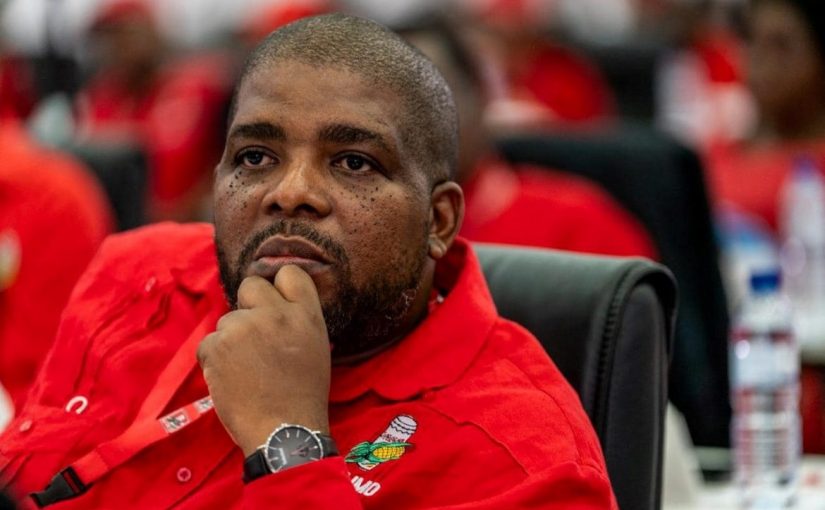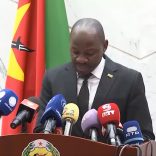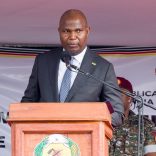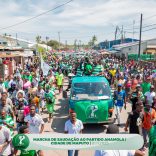Mozambique: Defence forces are containing extremists in Cabo Delgado - government | Watch
Frelimo SG says Mozambique at peace, trust in governance restored a year after elections

FILE - For illustration purposes only. [File photo: Rádio Moçambique]
The Secretary-General of the Mozambique Liberation Front (Frelimo), Chakil Aboobacar, says that one year after the general elections and the violence that followed, the country is now pacified and people have regained their trust in the government.
“There has been a renewed sense of trust among the population towards the governance process. We strongly believe that if we continue at this pace and in this direction, the stability and peace we aspire to will prevail,” Aboobacar told Lusa in an interview.
In the general elections of 9 October 2024, Frelimo, in power since 1975, again won a majority in parliament, elected all provincial governors and saw its candidate, Daniel Chapo, become Mozambique’s fifth President of the Republic.
Around five months of street protests followed, led by presidential candidate Venâncio Mondlane, who never recognised his defeat. The unrest left almost 400 people dead, including protesters and police, and resulted in paralysed cities, road barricades, looting and the destruction of businesses and public institutions.
For the Frelimo Secretary-General, peace is now an irreversible path for Mozambique. “Without a doubt. Peace is fundamental for everything we do. During the ‘Flame of National Unity’ tour [marking 50 years of independence], and in our visits to the provinces, the main message we received from Mozambicans is that they want peace. Peace is essential for our development,” he said.
Frelimo has been holding mass rallies in various parts of the country, re-establishing contact with the population after the post-election unrest. Aboobacar said the party has found stability and calm on the ground.
“We have already visited nine provinces, and the feeling we got after those violent and illegal demonstrations is that the country is stable. People once again believe in peace and are focused on the country’s development process, which is what matters most,” he said, adding, “The country is well, the country is at peace.”
Even so, Aboobacar acknowledged that the months of post-election violence cannot be forgotten and must serve as a lesson. “The most important lesson is that violence breeds violence. It is not and should never be the path chosen by Mozambicans to resolve their differences. It is always important to maintain dialogue, even in moments of high tension, and to prioritise dialogue as the key tool to reach consensus,” he said.
“The main appeal is that Mozambicans, as is already their practice, continue to view dialogue as the source of inspiration to solve their problems,” Chakil Aboobacar concluded.
On 23 December, two and a half months after the vote, the Constitutional Council declared Daniel Chapo the winner of the presidential election with 65.17% of the votes in the 9 October general elections. Venâncio Mondlane came second with 24%, but never accepted the results.
In April, the electoral platform Decide, a civil society organisation that monitors electoral processes, reported that at least 388 people had been killed and more than 800 shot during about five months of post-election protests, 90% of which “were caused by live ammunition.”
Daniel Chapo and Venâncio Mondlane met in Maputo for the first time since the elections on 23 March. The next day, the former presidential candidate called for an end to the violence, and no further unrest linked to the election dispute has been reported since then.












Leave a Reply
Be the First to Comment!
You must be logged in to post a comment.
You must be logged in to post a comment.